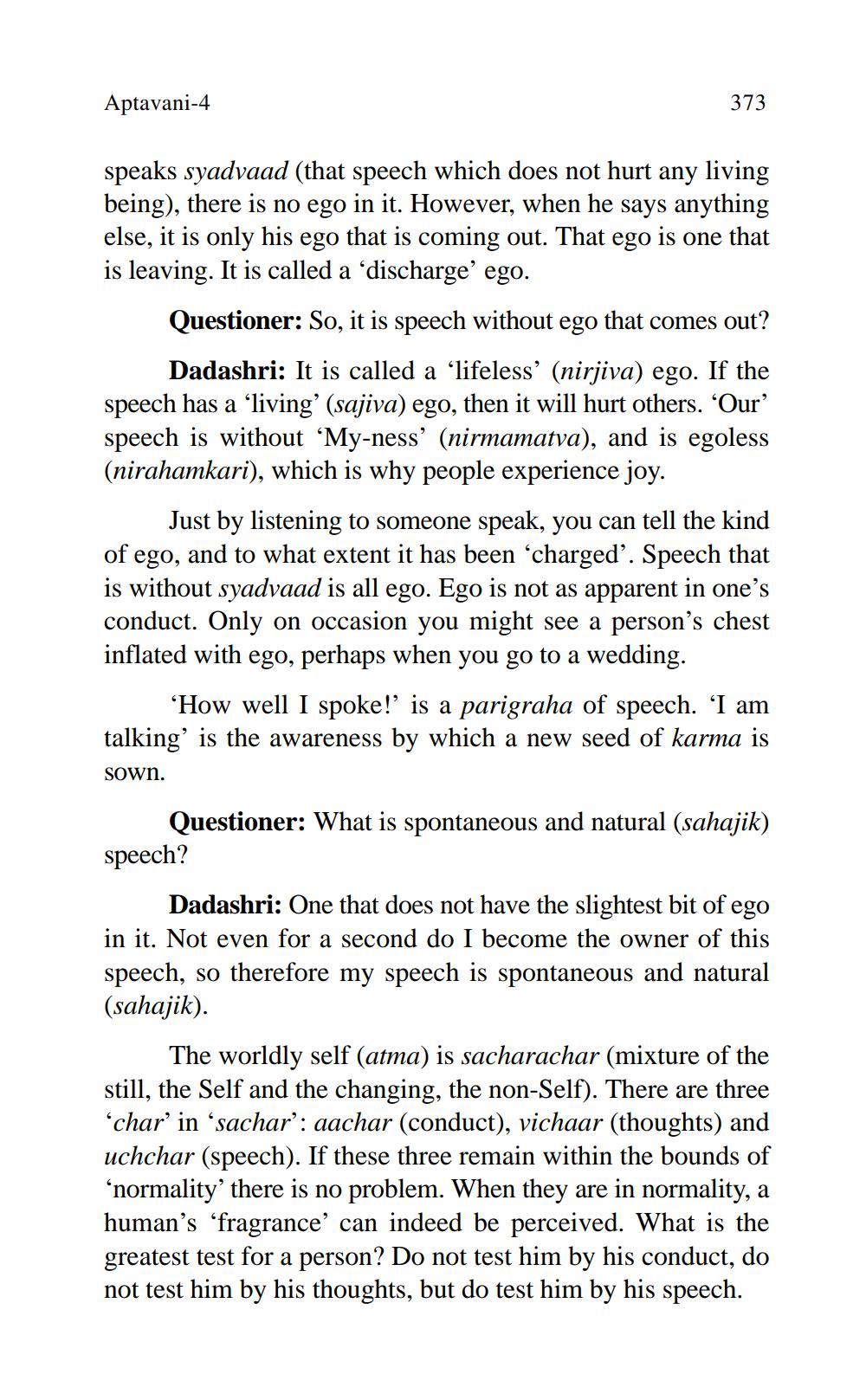________________
Aptavani-4
373
speaks syadvaad (that speech which does not hurt any living being), there is no ego in it. However, when he says anything else, it is only his ego that is coming out. That ego is one that is leaving. It is called a 'discharge’ ego.
Questioner: So, it is speech without ego that comes out?
Dadashri: It is called a “lifeless' (nirjiva) ego. If the speech has a 'living' (sajiva) ego, then it will hurt others. 'Ouro speech is without My-ness' (nirmamatva), and is egoless (nirahamkari), which is why people experience joy.
Just by listening to someone speak, you can tell the kind of ego, and to what extent it has been 'charged'. Speech that is without syadvaad is all ego. Ego is not as apparent in one's conduct. Only on occasion you might see a person's chest inflated with ego, perhaps when you go to a wedding.
"How well I spoke!' is a parigraha of speech. 'I am talking' is the awareness by which a new seed of karma is
Sown.
Questioner: What is spontaneous and natural (sahajik) speech?
Dadashri: One that does not have the slightest bit of ego in it. Not even for a second do I become the owner of this speech, so therefore my speech is spontaneous and natural (sahajik).
The worldly self (atma) is sacharachar (mixture of the still, the Self and the changing, the non-Self). There are three ‘char' in ‘sachar’: aachar (conduct), vichaar (thoughts) and uchchar (speech). If these three remain within the bounds of ‘normality’ there is no problem. When they are in normality, a human’s ‘fragrance' can indeed be perceived. What is the greatest test for a person? Do not test him by his conduct, do not test him by his thoughts, but do test him by his speech.




